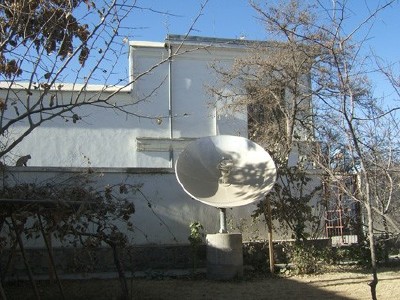Media - Internet
Media - Internet

For the history of telecommunication in Afghanistan see the website http://www.mcit.gov.af/AbouttheMinistry/history.asp of the Ministry of Communications and Information Technology.
Today ISP licences are issued by the Afghanistan Telecommunication Regulatory Authority (ATRA), which operates a two-class licence system distinguishing between providers of international Internet Protocol Connectivity (International Transit ISPs) and domestic Internet Service Providers (National ISPs).
The Afghan Wireless Communication Company (AWCC), a joint venture between the Ministry of Communications and Information Technology (MCIT) and a US company, became the first Internet Service Provider (ISP) in Afghanistan and opened Kabul’s first Internet café in July 2002. Since then the MCIT has issued over 20 more ISP licenses.
The Afghanistan Network Information Centre (AfgNIC) is responsible for technical and legal control of the Afghan ‘Top Level Domain’ (TLD) - .af – and for overseeing the administration of IP address assignment/registration in Afghanistan through its National Internet Registry of Afghanistan (NIRA).
According to the independent watchdog organisation Freedom House, in 2009 3.5 per cent of the population in Afghanistan had access to the internet.
While satellite internet access is the standard in offices run by international organisations in urban centres, many government employees have to rely exclusively on mobile phones for communication. Domestic internet access, where technically available, tends to be slow, patchy and expensive. Few Afghans have access to internet cafes or public facilities in libraries or media centres.
In 2007 work began on laying fibre optic cables linking Kabul with major Afghan cities and six neighbouring country capitals with the aim of speeding up connections and cutting costs to users. In November 2010 80 per cent of the project was completed, with links to Pakistan, Uzbekistan, Iran and Tajikistan.
The Afghanistan National Development Strategy (ANDS) for 2007/8-2012/3 aims to 'develop media – including national public information services - that are independent, pluralistic and accessible to Afghan women and men throughout the country.' Similarly, Article 34 of the constitution of Afghanistan allows for freedom of the press and of expression, although provisions in the 2005 Press Law preclude content that is 'contrary to the principles of Islam or offensive to other religions and sects'.
Despite the commitment to free access to information, many Afghans are concerned about the impact of online pornography and gambling, which they perceive to undermine established Afghan values. Efforts have been made to block access to certain types of sites, but this has also raised concerns that such censorship does not extend to political issues.
Use the navigation bar on the right to make direct contact with organisations and individuals working in the Internet sector.
